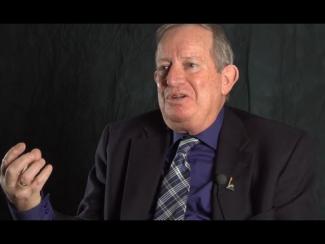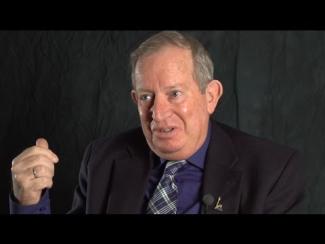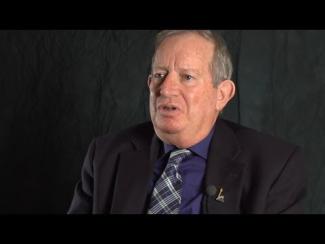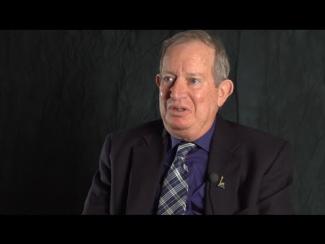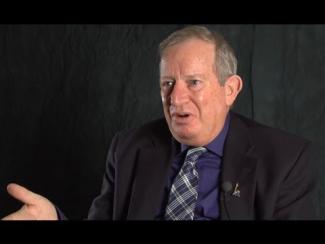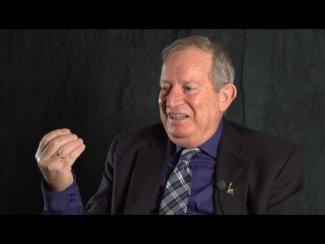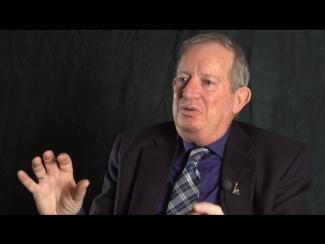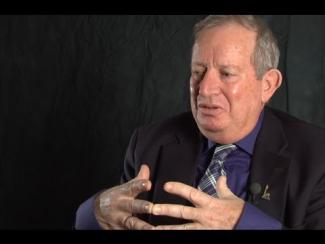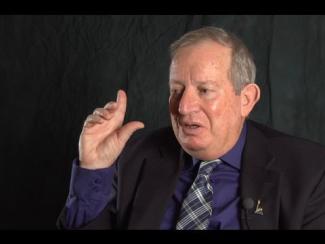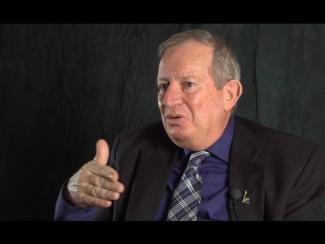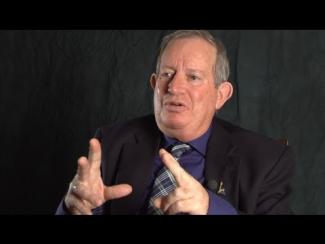The Yiddish Book Center's
Wexler Oral History Project
A growing collection of in-depth interviews with people of all ages and backgrounds, whose stories about the legacy and changing nature of Yiddish language and culture offer a rich and complex chronicle of Jewish identity.
Israel Bartal's Oral History
Israel Bartal, professor of Jewish History at Hebrew University, was interviewed by Christa Whitney on December 19, 2011 at the Association for Jewish Studies Conference in Washington, D.C. Israel Bartal's interview begins with a detailed description of his lineage, including the story of his family's arrival in Palestine from small, Galician shtetls in southeastern Poland (now western Ukraine). Israel dives deeply into his childhood, providing an elaborately detailed description of his life growing up in a Yiddish-speaking neighborhood in Tel Aviv from the 1930s to the 1950s. Israel elaborates on living between two distinct cultural spheres - Eastern European Yiddish home life and Zionist Hebrew public life - through recollections of favorite holidays, lessons in school, and his time spent on a socialist kibbutz. Israel's stories illuminate his mindset about the apparent divide, a mindset that from a young age saw these two cultural elements as part of a larger, cohesive and compatible, Jewish whole. Israel provides the trajectory of his education, starting from his compulsory Israeli kindergarten, to his time in the army and on a socialist kibbutz, eventually depicting his time studying Jewish history and Yiddish literature and culture at Hebrew University in Jerusalem. Reminiscing about his mentors, Israel describes the work that culminated in his dissertation before sharing his view of the academic Yiddish scene in Israel following the Six Day War in 1967. The middle portion of Israel's interview focuses on the shifting attitudes towards Yiddish both in Israel and throughout the world. Israel shares many stories that highlight his belief that without a state system or a religious system, Yiddish will not have a strong chance at survival. Although Israel still has his father to speak Yiddish to and has colleagues who are raising their children as Yiddish speakers, he believes that these occurrences will happen in smaller numbers as time goes on. Israel's interview then shifts towards the topic of Yiddish in the academy. Israel shares how he believes his academic scholarship intersects with his personal life before dissecting the role the academic can play in cultural transmission. Israel ends his interview by advising those serious about the academic study of Yiddish language and culture to master one other European literature and at least one other language that influences Yiddish.
This interview was conducted in English.

